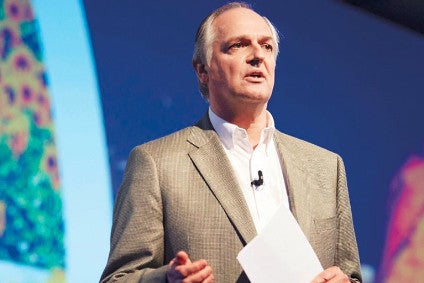
Unilever CEO Paul Polman confirmed today (6 April) the Flora maker is “seriously considering a de-merger or spin-off” of its spreads division as an alternative to selling the business.
Speaking to investors and analysts after Unilever announced plans to “exit” the spreads category, Polman said the option to spin-off the business – which also includes brands such as Stork and I Can’t Believe It’s Not Butter – was on the table if it could not strike an acceptable deal.

Discover B2B Marketing That Performs
Combine business intelligence and editorial excellence to reach engaged professionals across 36 leading media platforms.
Polman said: “With the strong brands like Flora and Becel, there is the opportunity to grow that business and extend these brands into other categories. Profitability is strong and cash generation is strong too, so we think a de-merger or spin-off has validity. It might result in that unit having opportunities to acquire other businesses and grow from there.”
CFO Graham Pitkethly indicated a spin-off could occur by the end of this year.
Unilever has faced repeated calls in some quarters of the investment community to sell the under-pressure spreads business, which has endured declining sales in a subdued sector.
In late 2014, Unilever announced it would separate the spreads arm from its wider food division and put it in a standalone unit. However, the performance of the unit remained lacklustre and Unilever continued to face pressure to dispose of the business.

US Tariffs are shifting - will you react or anticipate?
Don’t let policy changes catch you off guard. Stay proactive with real-time data and expert analysis.
By GlobalDataUnilever resisted but speculation grew in recent weeks the company could decide to look for a buyer for the unit as part of its operational review. In the wake of Unilever’s decision to rebuff Kraft Heinz’s interest in buying the whole company, the FMCG giant announced it would study its business to “accelerate” the value it could give to its shareholders. The results of that review, including the possible sale or spin-off of spreads, were announced today.
Polman insisted Unilever’s decision to create a stand-alone arm for spreads had benefited the unit. “There is no question that the dedicated focus we have brought to that business has not only improved its profitability but significantly improved its overall competitiveness.”
Unilever’s operational review has also led the company to decide to combine its foods business with its refreshment division, which houses its ice cream and beverage assets. The new division would be based in the Netherlands.
Asked why Unilever was not considering selling or spinning off its wider food assets, Polman said: “We can continue to create enormous value on our total business by having food together with personal care and home care. Our distribution in the emerging markets is a good example of that, as is driving our business to a more global footprint. There are also consumer and procurement synergies.”
Polman said whenever the group reviews those synergies “we see an enormous opportunity to create value ourselves and a too-high disadvantage of dis-synergies we would create by separating these businesses”.
The Dutchman, who has been Unilever’s chief executive since 2009, was asked whether he planned to stay with the company to see through the changes planned up to 2020. He said: “That’s a board decision, but we certainly want to be part of that change and we think it’s important to be part of that change as we help the company through the next stages.”
Announcing the results of its review of the business earlier today, Unilever said it would look to “increase our strategic flexibility for further portfolio optimisation through a review of the dual-headed legal structure, with a view to simplifying it”.
The group said it would target an underlying operating margin of 20% through an “acceleration” of a programme it dubs Connected 4 Growth, which has been aiming to make the company simpler and more agile.
Unilever also announced it would buy back EUR5bn of its shares this year and raise its dividend by 12%. The company said the hike to its dividend reflected “increased confidence in the outlook for profit growth and cash generation”.



